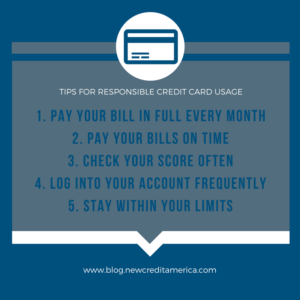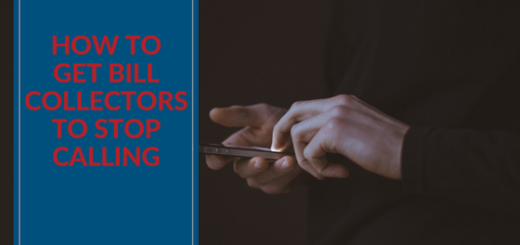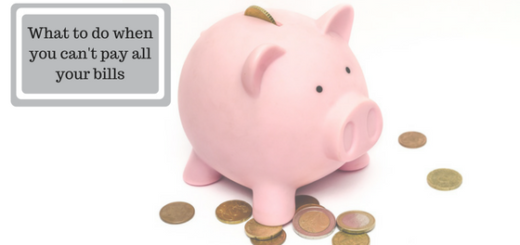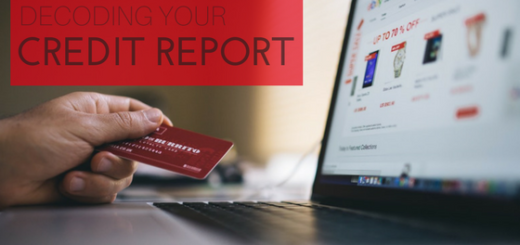Five Tips for Using Your Credit Card Responsibly
 According to new studies, Americans have the highest credit card debt in U.S. history ($1.021 trillion as of June, 2017!). In fact, the average American household has $10,995 in credit card debt.
According to new studies, Americans have the highest credit card debt in U.S. history ($1.021 trillion as of June, 2017!). In fact, the average American household has $10,995 in credit card debt.
If you’re impacted by debt, it’s not too late to adopt new habits. In addition to cutting back spending and seeking help to restore your financial health, learning how to responsibly use your credit card will help you to avoid going back into debt. Here are our top tips for responsible credit card usage.
Pay your bill in full every month
This one might seem tough, especially if you’re already struggling with debt. But, paying the full balance of your credit every month is crucial. By having the mindset that you must be able to afford paying your balance each month, you will hopefully avoid charging more than you can afford to pay back. Plus, if you don’t carry a balance on your card you won’t have to pay interest.
Your credit card issuer may say you only need to make a minimum payment, but this will increase the time it takes you to pay off your debts because some of your payment will be for interest instead of your credit card balance.
Pro tip: If you can, automate your payments. This will help you stay on top of your payments, and avoid carrying a balance. (This is key to avoiding sliding into debt!) Contact your card issuer to see if your payment can draft automatically from your checking account.
Pay on time
This goes hand in hand with paying your bill in full. Paying on time will save you money in the long run. Many card issuers charge harsh penalties for late payments. Also, part of your credit card score is determined by your payment history. So, a missed payment can have ugly consequences.
If you have trouble remembering your due dates, try scheduling reminders on your phone or marking the date in red on your calendar.
Check your score often
Are you on the right track with your card usage? That may be hard to determine if you don’t closely monitor your progress. Check your credit score (there are free apps like Credit Karma, Credit Sesame and CreditWise) monthly to see where you stand and if there is room for improvement.
Log into your account frequently
One of the pitfalls of having a credit card is that it can be easy to mindlessly charge everything without realizing you’ve overspent. Luckily though, a card leaves a paper trail. You don’t have to keep receipts. You can go online and log into your account to review your spending. It’s key to do this at least weekly to double check your spending against your monthly budget. For example, if your daily latte habit is causing your expenses to be a little high, you will know to adjust your spending if you check your records.
Stay within your limits
This tip might be last, but it’s one of the most important things to remember! Just because your credit limit is high doesn’t mean it’s a good idea to spend that much. If you can’t afford to pay it back at the end of the month, that’s a pretty good indication that the expense isn’t worth it!
One way to avoid spending beyond your means is to have a self-imposed limit. Once you’ve reached your limit, take that card out of your wallet and lock it up until the end of the month (or until you pay your bill in full).
Another tip is to designate which expenses you will put on your credit card and which you won’t. For example, using your card to pay your monthly bills will help you avoid using it for anything extravagant, and you will still benefit from any perks you receive for making purchases on your card.


